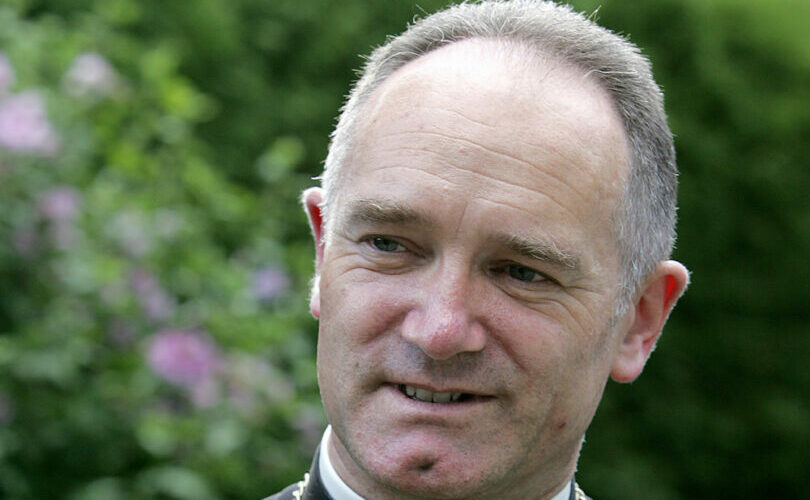August 10, 2016 (LifeSiteNews) — The Vatican has offered the Society of St. Pius X (SSPX) a personal prelature and confirmed that certain documents from the Second Vatican Council are not doctrinal in nature, according to an Italian archbishop tasked with overseeing the canonically irregular group’s return to full Communion with Rome.
Archbishop Guido Pozzo, the Secretary of the Pontifical Commission Ecclesia Dei, told a German newspaper that Pope Francis has offered the SSPX a return to full Communion via a personal prelature within the Church. A personal prelature is a hierarchically-structured group of Catholic faithful not bound by a geographic location — essentially, a diocese without a territory that complements the work of local dioceses “to which the faithful who form part of a personal prelature continue to belong.”
Opus Dei is the Catholic Church’s most well-known — and indeed, only — personal prelature.
Pozzo’s remarks, which Dr. Maike Hickson translated at OnePeterFive, indicate that the SSPX could be fully reunited with Rome despite the society’s rejection of certain Vatican II documents because the documents it rejects “are not about doctrines or definitive statements, but, rather, about instructions and orienting guides for pastoral practice.” The Second Vatican Council’s documents themselves indicate that only the Council’s teachings explicitly related to faith and morals are binding to Catholics, Pozzo explained.
“It was already clear at the time of the Council” that different Council documents carried different dogmatic weights, Pozzo said. “The General Secretary of the Council, Cardinal Pericle Felici, declared on November 16, 1964: ‘This holy synod defines only that as being binding for the Church what it declares explicitly to be such with regard to Faith and Morals.’ Only those texts assessed by the Council Fathers as being binding are to be accepted as such.”
The SSPX was founded by French Archbishop Marcel Lefebvre. The group supports traditional liturgy and seeks to share the truth of the Catholic faith in the modern world, a task they view as “especially necessary considering the spread of atheism, agnosticism, and religious indifference.”
Lefebvre was eventually excommunicated for validly but illicitly ordaining other bishops. In other words, the men he ordained did become bishops, but Lefebvre was acting against the Church’s rules by ordaining them without proper permission.
However, the SSPX is not currently “in schism,” or “excommunicated,” as is sometimes reported. Their canonical status is irregular; certain Vatican II documents are points of contention between the Vatican and the SSPX .
In recent years, the SSPX has inched closer to canonical regularization. Pope Francis has continued negotiations with the Society that began during Pope Benedict XVI’s pontificate. Pope Francis granted SSPX priests faculties to hear Confessions during the Year of Mercy — a faculty that will reportedly continue after the year.
One particular Council document with which the SSPX takes issue is Nostra Aetate (“In Our Time”), a declaration on the Church’s relationship with other religions. Some interpret it as inconsistent with or at the very least muddying the Catholic Church’s teaching that it alone is the one true religion.
Pozzo said Nostra Aetate is not dogmatic and therefore no Catholic is bound to accept it as such.
“Nostra Aetate does not have any dogmatic authority, and thus one cannot demand from anyone to recognize this declaration as being dogmatic,” Pozzo said. “This declaration can only be understood in the light of tradition and of the continuous Magisterium. For example, there exists today, unfortunately, the view — contrary to the Catholic Faith — that there is a salvific path independent of Christ and His Church. That has also been officially confirmed last of all by the Congregation for the Faith itself in its declaration, Dominus Iesus. Therefore, any interpretation of Nostra Aetate which goes into this [erroneous] direction is fully unfounded and has to be rejected.”
The leader of the SSPX has not been shy in his criticisms of Pope Francis, but he has also expressed hope and deep gratitude toward the pontiff for his welcoming attitude toward Rome’s reunification with the Society.
After the release of Amoris Laetitia, SSPX Superior General Bishop Bernard Fellay decried the “great and painful confusion that currently reigns in the Church” and the promotion of doctrinal errors “by a large number of pastors, including the Pope himself.”
“A deep division [over Holy Communion for the divorced and remarried] is forming within the episcopate and the Sacred College of Cardinals,” Fellay said. “The faithful are bewildered; the whole Church is suffering from this rift. … It is enough to make one weep.”

